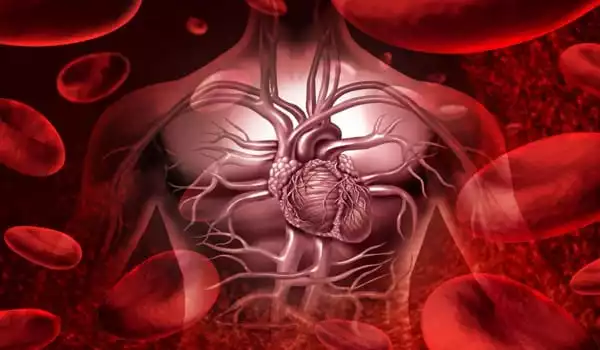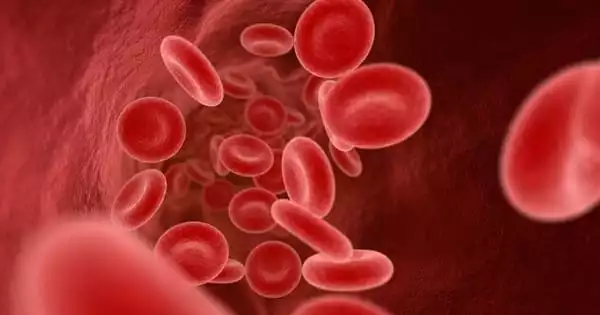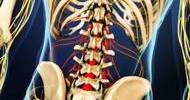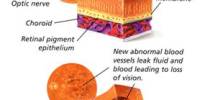Novel discoveries on how the body reacts to blood loss could lead to a new treatment for catastrophic injuries. A recent study discovered a cluster of cells in the brainstem that control the body’s reaction to significant blood loss. The most recent discovery identifies a group of neurons that are responsible for a response that maintains blood pressure following blood loss.
Scientists at the University of Virginia School of Medicine have uncovered a cluster of cells in the brainstem that regulates the body’s response to extreme blood loss, a discovery that could aid efforts to develop novel treatments for catastrophic injuries.
The research identifies a group of neurons that causes a response that keeps blood pressure stable following blood loss. However, excessive blood loss eventually leads to circulatory collapse – a condition known as “decompensated hemorrhage,” which is characterized by a rapid and deadly drop in blood pressure – and the new findings give light on why this happens.
“During blood loss, the brain controls a cardiovascular response that supports blood flow to important organs including the heart and brain,” stated UVA Department of Pharmacology researcher George Souza, Ph.D. “Our findings reveal that variations in the activity of a few hundred neurons in the brainstem influence the cardiovascular response to blood loss.”
Nonetheless, severe blood loss eventually results in cardiovascular collapse; a condition also called “decompensated hemorrhage” marked by a rapid and dangerous loss of blood pressure, and these new findings shed light on the reason for such an occurrence.
During blood loss, the brain controls a cardiovascular response that supports blood flow to important organs including the heart and brain. Our findings reveal that variations in the activity of a few hundred neurons in the brainstem influence the cardiovascular response to blood loss.
George Souza
Under Pressure
The new findings, led by UVA’s Stephen Abbott, Ph.D., and colleagues, offer light on a key process that the body utilizes to keep its blood pressure stable. The neurons described by Abbott and his colleagues, known as “adrenergic C1 neurons,” monitor blood pressure and respond to blood loss. When neurons detect blood loss, they enhance nerve activity, which constricts blood vessels and keeps blood pressure normal.
The scientists were able to determine this through sophisticated imaging and optogenetics, a technology that allows for the remote control of neurons by light. Their findings show that the C1 neurons become hyperactive during blood loss, which helps to keep blood pressure stable. However, when there is a significant loss of blood, these neurons become inactive, leading in cardiovascular collapse.
According to UVA Department of Pharmacology researcher George Souza, Ph.D., after blood loss, the brain controls a cardiovascular response that supports blood flow to important organs such as the brain and heart. According to Souza, their findings reveal that the cardiovascular response to blood loss is dependent on variations in the activity of a few hundred neurons in the brainstem.

The new findings, published in the journal Cell Reports by UVA’s Stephen Abbott, Ph.D., and colleagues, offer light on a crucial process employed by the body to maintain blood pressure. The neurons described by the study, dubbed “adrenergic C1 neurons,” monitor blood pressure and activate when there is a loss of blood.
Decompensated bleeding is the precursor to hemorrhagic shock, which causes the body to shut down. However, the researchers discovered that reactivating the C1 neurons in lab rats restored both blood pressure and heart rate.
“According to our findings, reactivating the brain pathways that govern blood pressure during decompensated bleeding efficiently reverses cardiovascular collapse. We believe that neuromodulation of the pathways shown in our study could be a useful adjunct therapy for low blood pressure after blood loss “Abbott, of UVA’s Department of Pharmacology, explained.
The scientists note that there may be several factors that contribute to the decline in the activity of the C1 neurons during the onset of decompensated hemorrhage. More research on that front is needed. But the team’s findings identify important new directions for that future research. “These findings illuminate the importance of the brain-body interactions during blood loss and provide a new perspective for the underlying cause of the cardiovascular collapse,” Abbott said.
When neurons detect blood loss, they enhance nerve activity, which constricts blood arteries and maintains normal blood pressure. The researchers discovered this using improved imaging and a technique known as optogenetics, which allows for the remote control of neurons via light. The study discovered that the C1 neurons become hyperactive after blood loss, causing blood pressure to remain stable. However, as a result of the substantial blood loss, such neurons become inactive, resulting in cardiovascular collapse.
Decompensated bleeding, in particular, serves as a precursor to hemorrhagic shock, in which the body begins to shut down. The researchers discovered, however, that reactivating C1 neurons in lab mice restored heart rate and blood pressure.
















